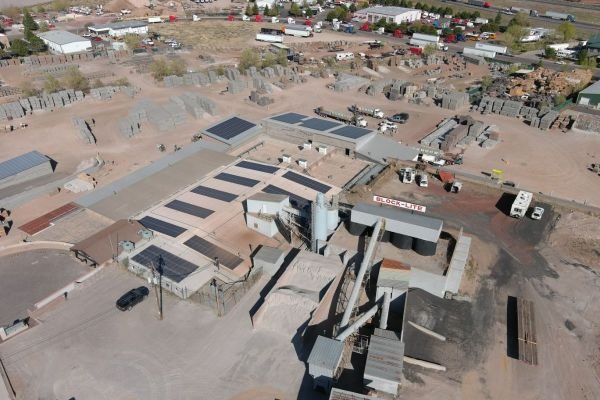
The southwestern U.S. is notoriously dry, and at risk of becoming even drier in the coming years due to climate change. Local governments are looking for ways to mitigate this crisis, and one ambitious proposal is to turn air into concrete in order to create buildings that can withstand increasingly harsh conditions. The reference project, which is being funded by local government agencies, will help test the feasibility of this idea. If it proves successful, it could revolutionize how we construct buildings throughout the region and beyond.
Developers of carbon-capture technology are excited to get underway on a new project with Block-Lite, a large construction firm. Together, they plan to retrofit the firm’s curing chamber so that they can use captured CO2 to produce concrete with lower emissions. CarbonBuilt has developed a recipe that uses less cement and integrates industrial waste that would otherwise be diverted to landfills. Together, these developments represent an important step forward in efforts to combat climate change and reduce emissions from the construction industry.
CarbonBuilt is an environmental technology startup working to remove CO2 from the atmosphere and store it in rock form. By doing this, they hope to help slow climate change and offset carbon emissions.
The 4 Corners Carbon Coalition is made up of four municipalities in the Southwest region of the United States. The award, totaling $150,000, is designed to help businesses reduce their greenhouse gas emissions. CarbonBuilt CEO Rahul Shendure notes that this will not be a quick or easy process, and that the firms involved will put additional funds and resources into making sure that the program is successful.
Reducing concrete production’s environmental impact is an important part of decarbonization. Concrete producers on the whole are responsible for roughly 7% of industrial carbon emissions, the International Energy Agency, an intergovernmental group, estimated in 2018. This makes reducing their environmental impact a crucial part of any strategy to reduce greenhouse gas emissions. Effective strategies to reduce concrete production’s environmental impact include making sure manufacturers use recycled materials and finding ways to produce less-polluting versions of the material.
Ever since its inception three years ago, Block-Lite has strived to be environmentally conscious and sustainable. Now the Arizona-based company, which manufactures masonry products the traditional way today, has been awarded a $120,000 prize by Verizon FiOS to research and develop an ultra-low carbon block product line. According to Block-Lite spokesperson Lucinda Calligan, this will eventually help the company become even more environmentally responsible as it cures bricks and blocks using natural gas instead of emitting tons of carbon dioxide through the curing process.








